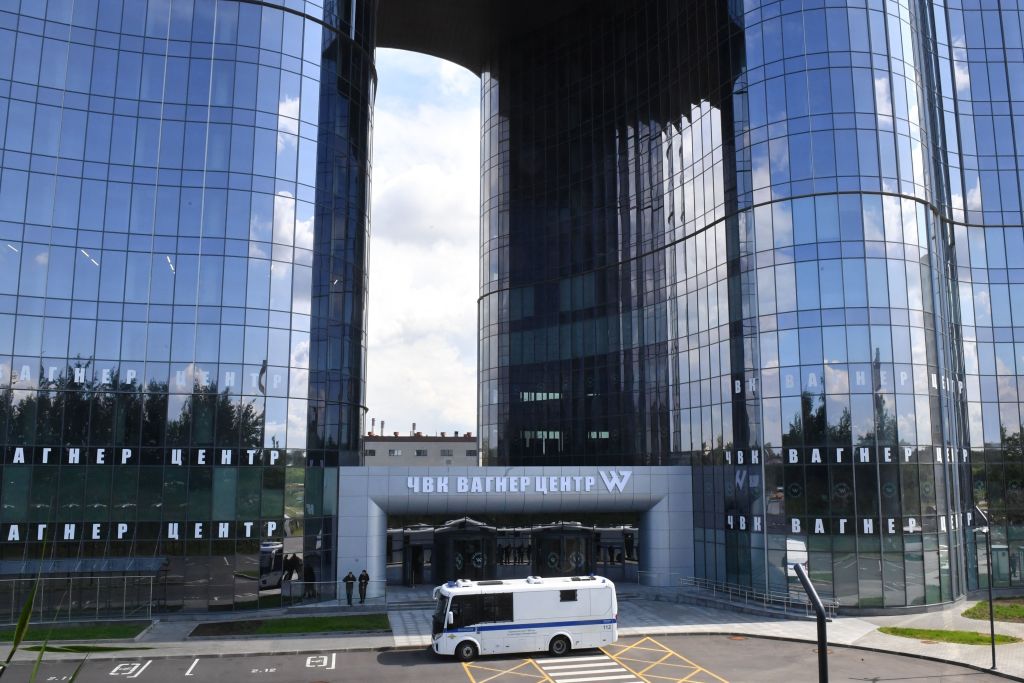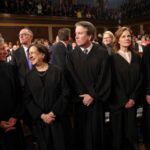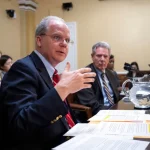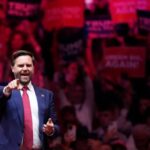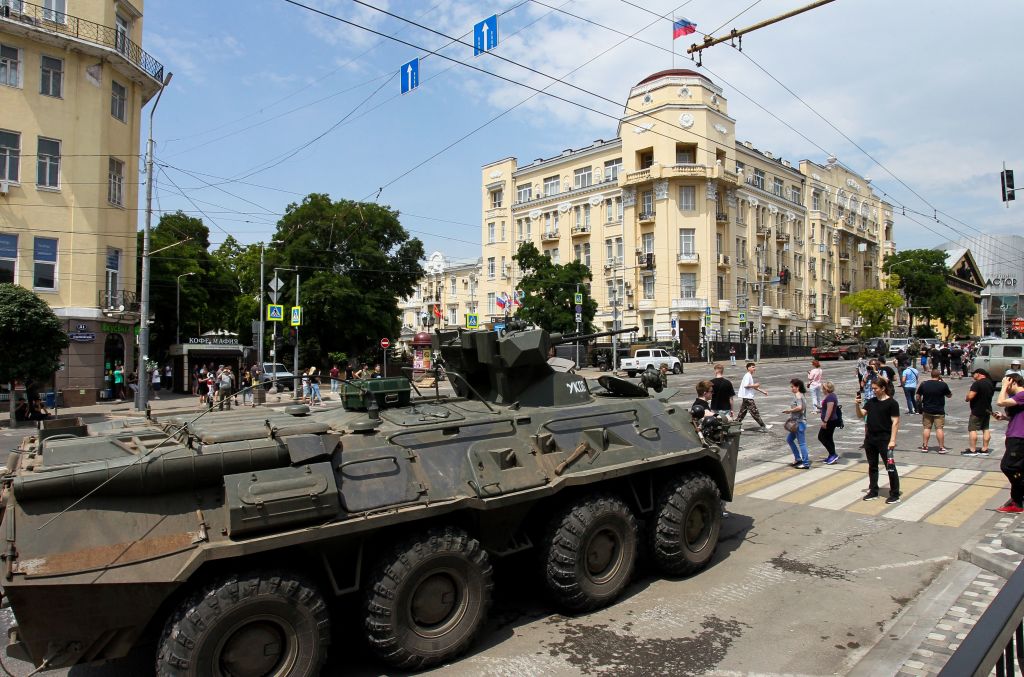
President Vladimir Putin has now addressed the Russian nation by television, vowing “punishment” hours after Wagner boss Yevgeny Prigozhin declared he was withdrawing his troops from Ukraine and marching his mercenary army to Moscow.
An “armed rebellion” against Moscow is treason and betrayal, and a threat to the Russian state which the government will “react harshly” to with “inevitable punishment, Vladimir Putin said in a televised address on Saturday morning. He also stated that “antiterrorist measures” were now in place in Moscow itself.
Warlord Yevgeny Prigozhin, the commander of the Wagner Private Military Company which is engaged around the world but particularly in Ukraine, where it had fought some of the toughest battles against Ukrainian defenders on behalf of Putin, has said he is taking his army to Moscow but insists it is not a coup.

People walk past an armoured personnel carrier in the city of Rostov-on-Don, on June 24, 2023. (Photo by STRINGER/AFP via Getty Images)
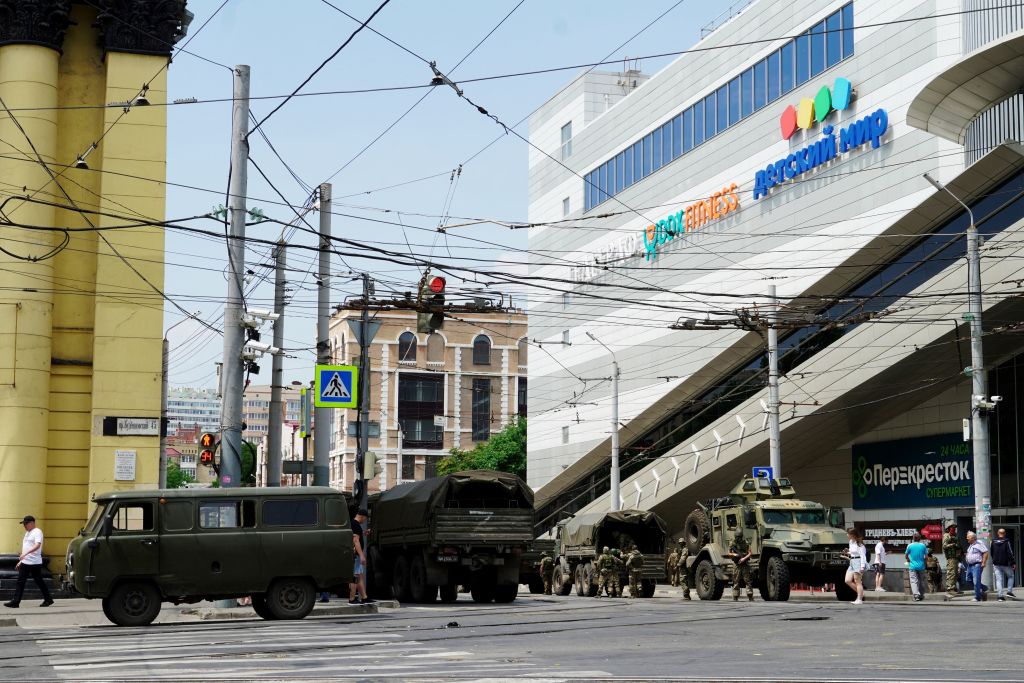
Members of Wagner group stand guard in a street in the city of Rostov-on-Don, on June 24, 2023. (Photo by STRINGER/AFP via Getty Images)
As previously reported, his army has already crossed into Russia and the move follows months of feuds between Wagner and Moscow, which recently have developed into accusations by the group that they have come under actual attack by theoretically allied Russian forces. Prigozhin accuses the Russian government, and particularly Russian Minister of Defence Sergey Shoigu of corruption and incompetence and says his army is now on a “march for freedom” to Moscow.
Per an intelligence digest by Britain’s Ministry of Defence this morning, the Wagner Mercenaries are proceeding towards Russia without meeting resistance and have occupied Rostov-on-Don, the “HQ which runs Russia’s military operations in Ukraine”. Given how little fighting there is as Wagner’s troops move north through Rostov and Voronezh, it seems likely Russian security forces “have likely remained passive”, in other words, waved the mercenaries through.
Putin’s remarks to camera Saturday morning said the actions of Prigozhin were an affront to the “heroism” of those Russian soldiers fighting in Ukraine, against what he said were “neo-Nazis and their masters” being funded by the West. The war was one of survival, he said, and compared Prigozhin’s accusations and declaration of a march on Moscow to the Russian civil war in 1917, and Putin vowed to not allow another Russian revolution to take place.
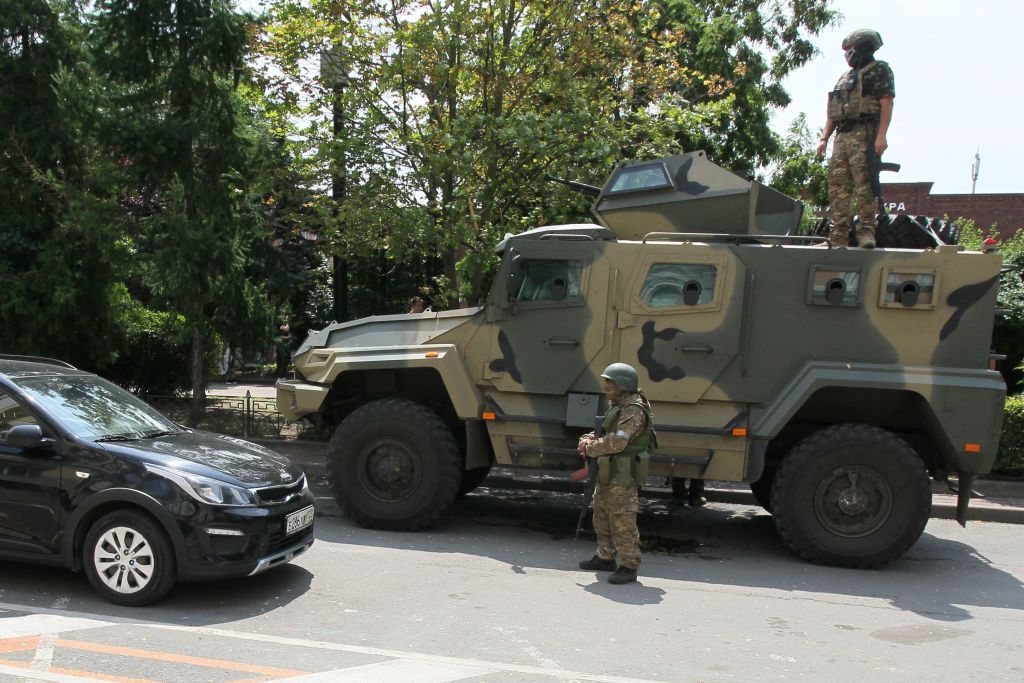
Members of Wagner group stand guard in a street in the city of Rostov-on-Don, on June 24, 2023. (Photo by STRINGER/AFP via Getty Images)
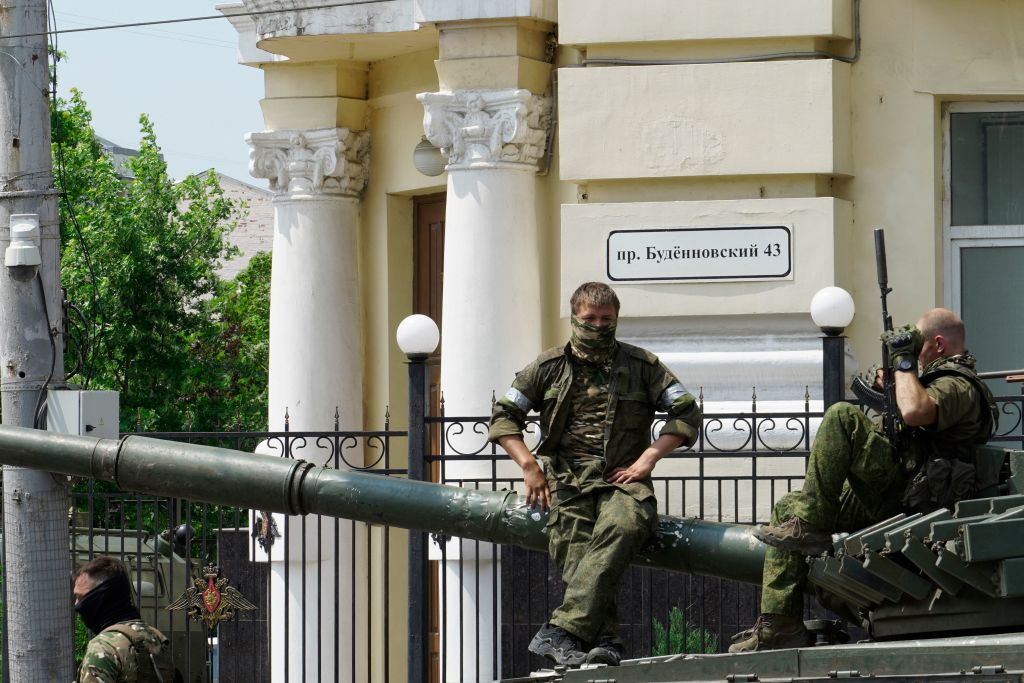
Members of Wagner group sit atop of a tank in a street in the city of Rostov-on-Don, on June 24, 2023. (Photo by STRINGER / AFP) (Photo by STRINGER/AFP via Getty Images)
Far from being a “march for freedom”, Putin characterised Prigozhin’s actions as being betrayal driven by personal greed and ambition, and said the only way to avoid “fatal” consequences now was to surrender. The Russian armed forces had been ordered to neutralise rebels, and those who “who raised arms against their comrades betrayed Russia and will answer for it.”
Putin also spoke of “antiterrorist measures” put in place in Moscow, which according to a Russian government statement essentially puts the city, as well as the region of Voronezh where Wagner has been reported to be moving north, under martial law. New powers include on-the-spot identity checks, “enhancing” public order, “control of phone calls” and “limiting communications”, power to commandeer all vehicles, and restrictions on public places.
The Russian National Anti-Terrorism Committee said these measures were in place to “prevent possible terrorist acts”. Chechen fighters have reportedly been redeployed to “tension areas” and the Russian government has closed key bridges on the M2 and M4 Federal highways, which are fast roads directly from Crimea and Rostov on Don to Moscow.
Wagner has now responded to Putin’s speech, with a Telegram channel associated with the group remarking dryly that: “soon we will have a new President”.
Ukraine has also reacted to the developments, with a spokesman for President Volodymyr Zelensky’s office saying things are only just beginning in Russia, and the only possible outcomes now are the death of rebel mercenary leader Prigozhin, or the destruction of the pro-Putin faction. The spokesman emphasised it was his belief that the rebels had already captured “Rostov, several federal highways, the headquarters of the Southern District”.
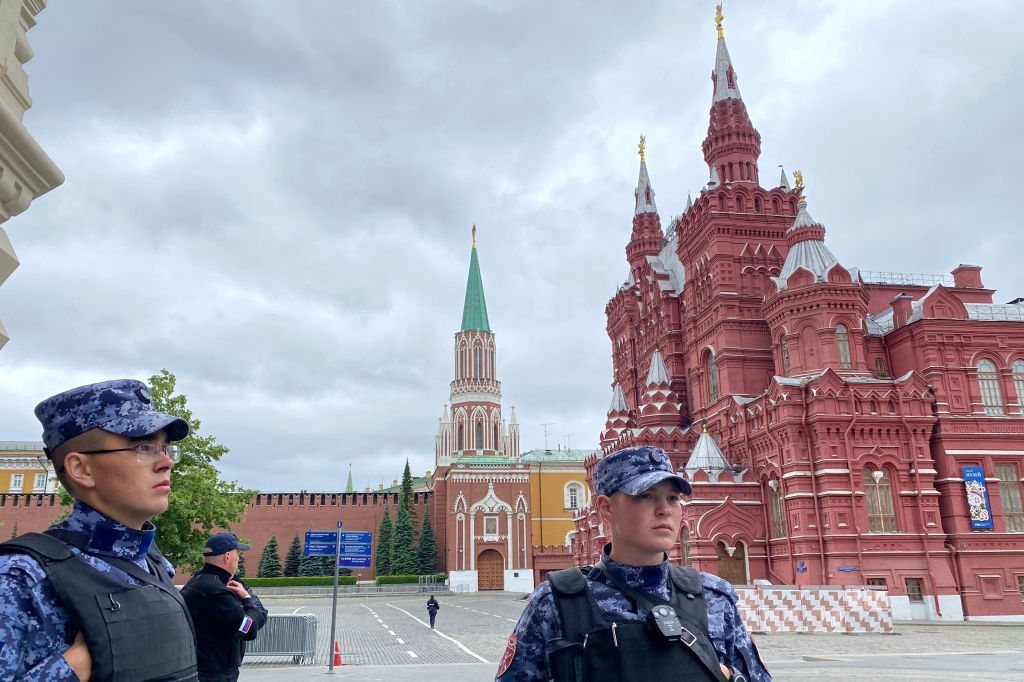
Russian National Guard (Rosgvardiya) officers patrol an area around the Kremlin in Moscow, on June 24, 2023. Russian President Vladimir Putin on Saturday acknowledged a “difficult” situation was unfolding in the southern city of Rostov-on-Don, where the Wagner mercenary group has taken control of key military sites in an effort to oust Russian military’s top brass. (Photo by AFP) (Photo by -/AFP via Getty Images)
